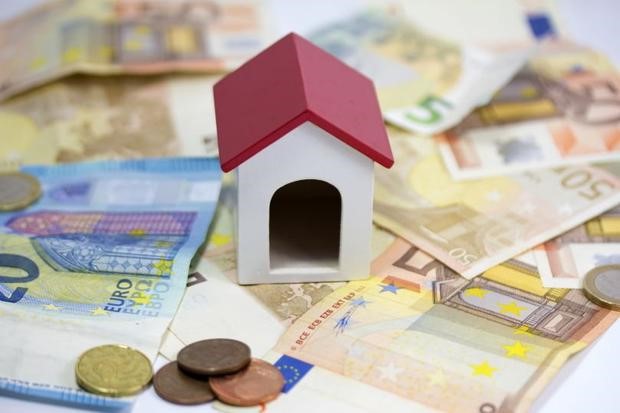Easing of mortgage borrowing rules for first-time buyers and ongoing Government supports are underpinning prices, says report
:quality(70)/cloudfront-eu-central-1.images.arcpublishing.com/irishtimes/NUUEMNWRUROW3NLTPOPJSHEFFU.jpg)
Mon Jul 10 2023 – 05:00
Asking prices for Irish homes picked up in the three months to the end of June following three quarter-on-quarter declines in a row, as the market showed signs of stabilising even as interest rates continued to climb, according to MyHome.ie.
The average asking price for a home increased by 4.3 per cent in the second quarter compared with the first three months of 2023, and are now 2.2 per cent higher than the same time last year, at €325,000, according to MyHome, which is part of The Irish Times group.
That compared to a 0.4 per cent quarter-on-quarter drop in the first three months of the year.
:quality(70)/cloudfront-eu-central-1.images.arcpublishing.com/irishtimes/2IYJLUCBTJG2VIQF242VC74RVY.PNG)
[ Does the Government really want house prices to fall? ]
[ Sherry FitzGerald flags thousands of properties lost to rental market ]
Dublin prices rose 3.3 per cent in the period to the end of June and at an annual rate of 0.6 per cent, according to the latest data. Homes outside the capital increased by 4.6 per cent on the quarter and by 3.5 per cent year-on-year.
:quality(70)/cloudfront-eu-central-1.images.arcpublishing.com/irishtimes/NUUEMNWRUROW3NLTPOPJSHEFFU.jpg)
The report also points to more realistic pricing by sellers as homes are now being sold for 1.4 per cent over the asking price, on average, down from between 5 and 6 per cent in the middle of last year.
MyHome.ie said prices are being underpinned by an easing of Central Bank borrowing rules for first-time buyers at the start of the year and by ongoing Government supports for people looking to get a foot on the property ladder, as well as a shortage of properties on the market.
:quality(70)/cloudfront-eu-central-1.images.arcpublishing.com/irishtimes/74YSUN6K3NEE7LRELCOM45BPKU.png)
This has more than offset the impact of the European Central Bank (ECB) continuing to raise official rates this year. Its main lending rate moved from zero to 2.5 per cent between last July and December, and has since risen to 4 per cent.
“The stabilisation of the market is to be welcomed,” said Joanne Geary, managing director of MyHome.ie. “The Government’s demand-side initiatives and looser Central Bank lending rules appear to be negating the effects of rising interest rates, but we also need to see available properties on MyHome.ie approach the pre-pandemic figure of 20,000 to make a meaningful difference.”
There are currently just 14,000 properties listed for sale on the company’s website.
Conall Mac Coille, chief economist at Davy and author of MyHome.ie’s latest quarterly report, said an overall decline in Irish house prices this year still “cannot be ruled out, given the prospect of further ECB rate hikes”. However, he said an annual drop in values now appears less likely.
“We have left our forecast for asking price inflation unchanged at 1.5 per cent through 2023 but have revised up our forecast for housing completions to 29,500,” he said. Davy previously estimated that completions would fall to 27,500 units this year from almost 30,000 in 2022.
Separately, a new report suggests activity in the Irish construction sector expanded in June for the first time since last September.
The BNB Paribas Real Estate Ireland construction purchasing managers’ index rose to 50.4 in June from 49.4 in May, the company said. A reading above 50 indicates that activity is growing.
John McCartney, head of research at BNP Paribas Real Estate Ireland, said the increase “has been coming for a while, with building firms consistently reporting increased new orders and staffing levels since the start of this year”.
Still, the subsector reading for housing activity was only 48.4, marking a ninth successive month of decline. Mr McCartney said the viability of apartment building amid higher constriction cost and interest rates in recent times “remains challenging” in particular. Still, he expected new home completions to reach 30,000 this year.
Source: The Irish Times 10/07/23

